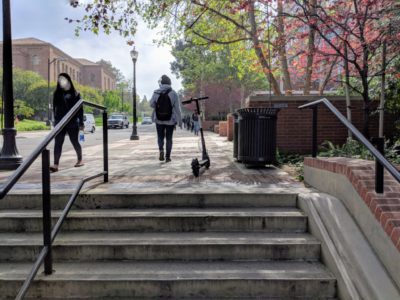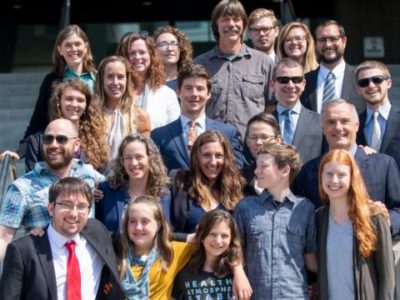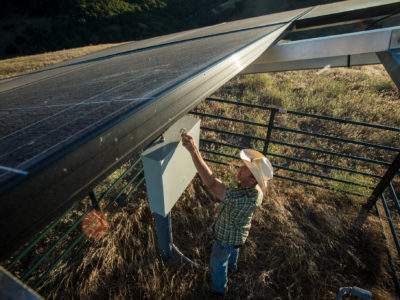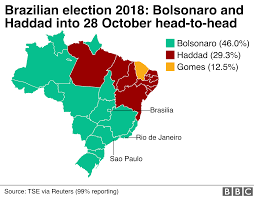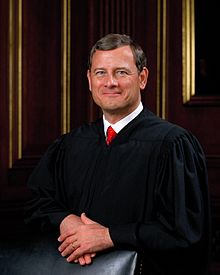VMT Mitigation Webinar – Tuesday October 30, 10-11am
Berkeley Law's free event will feature the Governor's Office of Planning and Research
Under Senate Bill 743 (Steinberg, 2013), California law now requires developers of new projects, like apartment buildings, offices, and roads, to analyze and mitigate the amount of additional driving miles the projects generate. To facilitate compliance with SB 743, some local and regional leaders are considering creating "banks" or "exchanges" to allow developers to fund off-site projects that reduce vehicle miles traveled (VMT), such as new bike lanes, transit, and bus...
CONTINUE READINGNot “SAFE” For California
Emmett Institute Submits Comments on Trump Administration’s Proposed Rollback of California Motor Vehicle Emission Standards Waiver
Today, the Emmett Institute submitted comment letters to EPA and NHTSA urging the withdrawal of the Trump Administration’s so-called “Safer Affordable Fuel-Efficient” Vehicles Rule for Model Years 2021-2026 Passenger Cars and Light Trucks. The proposed rule would freeze federal fuel economy standards for MY 2021-2026 vehicles at 2020 levels, and revoke California’s waiver, granted five years ago, to adopt its own motor vehicle emission standards through the Ad...
CONTINUE READINGStates Rally Around Renewables
States have ignored Trump to promote clean energy within their borders.
CLEE published a survey of state energy policies through 2017. The trend toward renewables has continued in 2018. Even after nearly two years of the Trump Presidency, states haven't given up. Instead, they're moving forward aggressively. If anything, Trump seems to have stimulated these states to try even harder. Here’s a quick rundown of what’s happened so far in 2018: California mandated that all new homes have solar energy and adopted bold new goals i...
CONTINUE READINGHow I Learned to Stop Worrying and Love the Scooter
Criticism of electric scooters misses the climate change and pedestrian safety benefits
If you live in a major city on the West Coast or in handful of cities on the East Coast, you probably have an opinion on the electric scooters that have been dropped haphazardly onto your local streets and sidewalks. And it’s probably not a positive one. But I’m here to tell you why scooters might just get us to our climate change goals, and reduce pedestrian fatalities at the same time. Like many of you, my first reaction to the flocks of Bird scooters dropped o...
CONTINUE READINGOn the future of climate policy
A response to William Nordhaus's comments about how essential carbon taxes are to addressing climate change
William Nordhaus recently (and deservedly) won the Nobel Prize for Economics for his work on the economic implications of climate change and policies to respond to climate change. In the press coverage after the award, some comments were attributed to Nordhaus that I think are important to consider in more depth – in part because understanding the implications of those comments is central to understanding how we can develop effective policy responses to the climate cri...
CONTINUE READINGLand Use Planning, Transit, and the Dodgers: The Legal Planet World Series Special
Stop the Myths About Evil Walter O'Malley
Since the World Series starts in a few hours, I fully expect the standard kvetchers to come out of the woodwork and complain about Los Angeles stealing the Dodgers from Brooklyn, etc. Peter Golenbock, in Bums: An Oral History of the Brooklyn Dodgers, compares O'Malley to Hitler and Stalin. Nonsense. It is time to set the record straight. O'Malley wanted to stay in Brooklyn. He also recognized that 1) Ebbets Field was falling apart and not big enough (its capaci...
CONTINUE READINGWhat to Make of Chief Justice Roberts’ Stay of the Juliana Case
It's only temporary but stay tuned
Last Friday, as Rick Frank previously blogged, Chief Justice Roberts put a temporary halt to the Juliana v. United States trial --the Juliana case was brought by a group of children alleging that the United States has violated the public trust doctrine and various provisions of the US. Constitution in failing to protect them from the ravages of climate change. Chief Justice Roberts also stopped the parties from conducting further discovery. His order is in pl...
CONTINUE READINGAmerican Journal of International Law Publishes Symposium on Climate Change Localism
The online alter ego of the American Journal of International Law, AJIL Unbound, has just published its symposium on Climate Change Localism. The symposium explores the implications of subnational actors’ efforts to address climate change. The explosion of initiatives and declarations in recent years outside the federal government, ranging from state and local governments to industry and non-governmental organizations, has changed the face of climate policy. Such musc...
CONTINUE READINGAnother Scary Election (But Not Here)
An election next Sunday has implications for the entire planet.
I hate to give you something else to freak out about in our current Age of Anxiety, but there’s a very worrisome presidential election next Sunday. No, I haven’t completely lost it – the presidential race isn’t here, it’s in Brazil. The election pits a dangerous populist against a highly competent but colorless Establishment candidate. Does this sound at all familiar to you? The populist is Jair Bolsonaro. He’s been a legislator for years, somewhere on t...
CONTINUE READINGSupreme Court Stays Upcoming Juliana Trial
Chief Justice Roberts' Order a Major Win for the Trump Administration
The presently-constituted U.S. Supreme Court doesn't seem to care for climate change litigation or regulation. On Friday the Supreme Court took the extraordinary step of freezing pending discovery and the scheduled October 29th trial date in the closely-watched Juliana v. United States litigation. In a brief order, Chief Justice Roberts stayed all district court proceedings in the Juliana case and ordered the plaintiffs to filed a response by October 24th to the Tr...
CONTINUE READING





